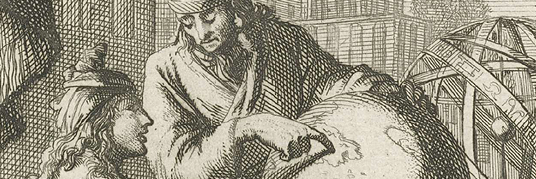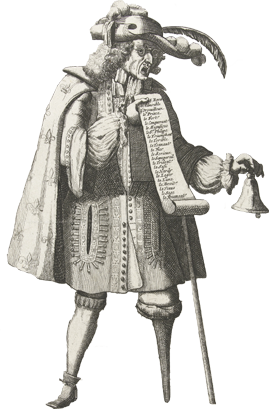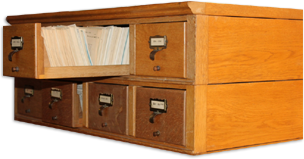You are viewing the Cultures of Knowledge Blog archive for the ‘Calls for Papers’ Category:
Paper proposals are invited for a one-day colloquium on Translation and Translators in the Circulation of Knowledge in Early Modern Science, which will take place at London’s Warburg Institute on Friday 28 June 2013. The event ‘will explore the role of translation in early modern science, providing a forum for discussion about translations as well as the translators, mediators, agents, and interpreters whose role in the intellectual history of the period remains ill defined and deserves greater attention’. Suggested topics include the philosophy and theory of translation; the ‘professional translator’; the function and use of translations; auxiliary languages; translation in learned correspondence; the readers of translations; and informal translations (adaptations, paraphrases).
The deadline for proposals for 25-minute papers and full panels is 28 February 2013. For further details and submission instructions, see the colloquium webpage.
James Brown
November 30, 2012
Calls for Papers, Conferences and Workshops, Events, Projects and Centres
Tags: Book History, Diplomatic History, Gender, Global, History of Scholarship, History of Science, Networks, Religion, Women
 The Centre for Seventeenth-Century Studies at Durham University is seeking papers for a conference on Intellectual Networks in the Long Seventeenth Century (30 June–2 July 2013). The event – which will feature a keynote lecture from our own Howard Hotson – will ‘explore the emergence and consolidation of systems of intellectual and cultural exchange during the long seventeenth century, while assessing their lasting influence on the history of scholarship, literature, diplomacy, science, and religious communities’. Proposals are encouraged on (inter alia) erudite correspondence; academic networks; diplomacy; literary circles; intellectual exchange within religious communities; the book trade; women and intellectual exchange; and popular cultural exchange.
The Centre for Seventeenth-Century Studies at Durham University is seeking papers for a conference on Intellectual Networks in the Long Seventeenth Century (30 June–2 July 2013). The event – which will feature a keynote lecture from our own Howard Hotson – will ‘explore the emergence and consolidation of systems of intellectual and cultural exchange during the long seventeenth century, while assessing their lasting influence on the history of scholarship, literature, diplomacy, science, and religious communities’. Proposals are encouraged on (inter alia) erudite correspondence; academic networks; diplomacy; literary circles; intellectual exchange within religious communities; the book trade; women and intellectual exchange; and popular cultural exchange.
The deadline for proposals for 20-minute papers and full panels is 15 January 2013. For further details and submission instructions, head along to the conference webpage or download the flyer (pdf).
The News Networks in Early Modern Europe research group is seeking papers for its terrific-sounding concluding conference on News and the Shape of Europe, 1500-1750 (Queen Mary, University of London, 26-28 July 2013). Emphasizing the transnational attributes of news networks and their superimposition on pre-existing systems of exchange (physical/logistical, commercial, religious, diplomatic, military, and scholarly), the event  is after contributions on the following themes: ‘International news; networks of news; news in transmission; translating news; war reporting; news from beyond Europe; forms of news; orality/manuscript/print; the uses and afterlives of news; old (and recycled) news; images of news; news and institutions; news and the state; news and the city; news readers’.
is after contributions on the following themes: ‘International news; networks of news; news in transmission; translating news; war reporting; news from beyond Europe; forms of news; orality/manuscript/print; the uses and afterlives of news; old (and recycled) news; images of news; news and institutions; news and the state; news and the city; news readers’.
The deadline for 250-word proposals for communications of twenty minutes is 28 February 2013. For further information, submission instructions, and contact details, head along to the News Networks in Early Modern Europe Blog.
The neglected theme of epistolary archives – the active collection and curation of letter objects and related papers within various social and institutional ecosystems over broad expanses of time – is close to the heart of Cultures of Knowledge, so we’re delighted to see that friends and colleagues at the Centre for Editing Lives and Letters at QMUL are organizing a fascinating-sounding anniversary conference on The Permissive Archive. To be held at CELL in November 2012, the conference ‘seeks presentations from a wide range of work which opens up archives – not only by bringing to light objects and texts that have lain hidden, but by demystifying and demonstrating the skills needed to make new histories’. Aiming to rescue archives from their persistent but wildly misleading association with neutrality, inertia, and ‘settled dust’, the conference invites proposals (which should cover the period 1500-1800) on definitions of permissive archives; the shape of the archive – ideology and interpretation; the archive which challenges or disrupts; dispersed collections; the archivist and the historian; the ethics and comedy of the archive; order and anarchy; and many more exciting topics.
 The deadline for 300-word proposals for 25 minute papers is 31 July 2012. For full details and submission instructions, head along to the conference webpage.
The deadline for 300-word proposals for 25 minute papers is 31 July 2012. For full details and submission instructions, head along to the conference webpage.
 It’s an exciting time for friends and colleagues at Dublin’s Edward Worth Library – a collection of 4,500 books, left to Dr Steevens’ Hospital by Edward Worth (1678-1733), an early eighteenth-century Dublin physician – who have contacted us with two reminders:
It’s an exciting time for friends and colleagues at Dublin’s Edward Worth Library – a collection of 4,500 books, left to Dr Steevens’ Hospital by Edward Worth (1678-1733), an early eighteenth-century Dublin physician – who have contacted us with two reminders:
A conference on The Reception of Newton will be held at the Library on 12–13 July 2012. In recent years, considerable attention has been devoted to the elucidation of the precise nature and scope of Newton’s influence on eighteenth-century science in particular, and on Enlightenment culture more generally. The Library is uniquely positioned to contribute to this ongoing reassessment, as its holdings bear unique witness to the spread of Newtonianism in Ireland. Worth’s collection reminds us of the range and depth of Newton’s intellectual impact on Europe and the crucial role played by second generation Newtonians in clarifying, classifying and re-presenting his ideas. The deadline for 300 word abstracts is 1 March 2012; for further details, see the conference website.
The Library is also offering a single one-month fellowship to be held in 2012, to encourage research relevant to its holdings. The collection is particularly strong in three areas: early modern medicine, early modern history of science, and, given that Worth was a connoisseur book collector interested in fine bindings and rare printing, the history of the book. Research does not, however, have to be restricted to these three key areas. Further information about the collection and its catalogues may be found on the library website. The closing date for applications is 30 March 2012. For further details and application procedures please contact: Dr Elizabethanne Boran, Librarian, The Edward Worth Library, Dr Steevens’ Hospital, Dublin 8, Ireland (elizabethanne.boran[at]hse.ie).
The Scaliger Institute and Brill publishers invite scholars and researchers to submit proposals for the 2012 Brill Fellowship at the Scaliger Institute of Leiden University Library. Brill, the oldest scholarly publishing house in The Netherlands based in Leiden since 1683, is sponsoring the Scaliger Institute from the year 2006 onwards. This contribution provides an opportunity for one or two fellows to come to Leiden University Library each year in order to carry out research in the library’s rich Special Collections. The Brill fellowship is intended for a minimum period of three months and for a maximum period of six months. The allowance, which is intended to cover the costs of accommodation and research, is €1,000 per month. Applications can be submitted by mail and post to the board of the Brill fellowship. The prospective fellow must be involved in one of Brill’s main subject areas: Middle East and Islamic Studies; Asian Studies; Medieval and Early Modern History; Biblical and Religious Studies; Ancient Near East and Egypt and Classical Studies. The Brill fellow is expected to contribute to the activities of the Scaliger Institute and to give a public lecture. When the occasion arises, the lecture will be published by Brill in association with the Scaliger Institute. The closing date for applications is 31 January 2012. For further details and application instructions, please visit the Fellowship webpage.

 The
The  is after contributions on the following themes: ‘International news; networks of news; news in transmission; translating news; war reporting; news from beyond Europe; forms of news; orality/manuscript/print; the uses and afterlives of news; old (and recycled) news; images of news; news and institutions; news and the state; news and the city; news readers’.
is after contributions on the following themes: ‘International news; networks of news; news in transmission; translating news; war reporting; news from beyond Europe; forms of news; orality/manuscript/print; the uses and afterlives of news; old (and recycled) news; images of news; news and institutions; news and the state; news and the city; news readers’. The deadline for 300-word proposals for 25 minute papers is 31 July 2012. For full details and submission instructions, head along to the
The deadline for 300-word proposals for 25 minute papers is 31 July 2012. For full details and submission instructions, head along to the  It’s an exciting time for
It’s an exciting time for 
 Join
Join 